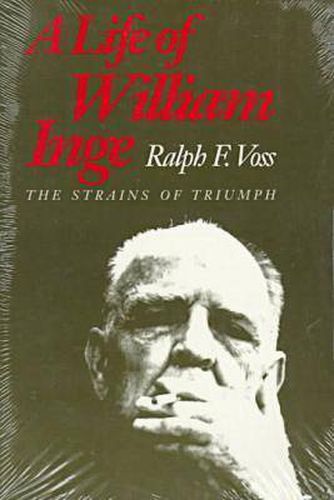Readings Newsletter
Become a Readings Member to make your shopping experience even easier.
Sign in or sign up for free!
You’re not far away from qualifying for FREE standard shipping within Australia
You’ve qualified for FREE standard shipping within Australia
The cart is loading…






This title is printed to order. This book may have been self-published. If so, we cannot guarantee the quality of the content. In the main most books will have gone through the editing process however some may not. We therefore suggest that you be aware of this before ordering this book. If in doubt check either the author or publisher’s details as we are unable to accept any returns unless they are faulty. Please contact us if you have any questions.
This book is a biography of Willian Inge, the American playwright who committed suicide in 1973. By 1962 he had written an unprecedented string of Broadway hits
Picnic ,
Bus Stop ,
The Dark at the Top of the Stairs
and
Come Baack, Little Sheba . All four plays had become successful films featuring top Hollywood stars. Inge had received a Pulitzer Prize for
Picnic
and an Academy Award for his screenplay,
Splendour in the Grass . Even his long-time friend and mentor, Tennesse Williams, was envious of his success. Privately, Inge was miserable. His long struggle with alcoholism and profound shame over his homosexuality plagued him before, during and after his decade of great success. As criticism of his work intensified, Inge responded with increasingly frantic attempts to please by
modernizing
his writing. He abandoned the small town characters and settings he knew in favour of more lurid, urban subject matter. In the end, his characters lost their authentic voices, and neither critics nor audiences found his later work believable. In this first book-length literary biography of Inge, Ralph Voss aims to peel back the veneer of public success and lay bare the private pain and isolation of the man who was called America’s first authentic midwestern playwright. He draws upon interviews, memoirs, and unpublished manuscripts, letters, and papers to show how Inge’s unhappy life fueled the struggles his plays depicted.
$9.00 standard shipping within Australia
FREE standard shipping within Australia for orders over $100.00
Express & International shipping calculated at checkout
This title is printed to order. This book may have been self-published. If so, we cannot guarantee the quality of the content. In the main most books will have gone through the editing process however some may not. We therefore suggest that you be aware of this before ordering this book. If in doubt check either the author or publisher’s details as we are unable to accept any returns unless they are faulty. Please contact us if you have any questions.
This book is a biography of Willian Inge, the American playwright who committed suicide in 1973. By 1962 he had written an unprecedented string of Broadway hits
Picnic ,
Bus Stop ,
The Dark at the Top of the Stairs
and
Come Baack, Little Sheba . All four plays had become successful films featuring top Hollywood stars. Inge had received a Pulitzer Prize for
Picnic
and an Academy Award for his screenplay,
Splendour in the Grass . Even his long-time friend and mentor, Tennesse Williams, was envious of his success. Privately, Inge was miserable. His long struggle with alcoholism and profound shame over his homosexuality plagued him before, during and after his decade of great success. As criticism of his work intensified, Inge responded with increasingly frantic attempts to please by
modernizing
his writing. He abandoned the small town characters and settings he knew in favour of more lurid, urban subject matter. In the end, his characters lost their authentic voices, and neither critics nor audiences found his later work believable. In this first book-length literary biography of Inge, Ralph Voss aims to peel back the veneer of public success and lay bare the private pain and isolation of the man who was called America’s first authentic midwestern playwright. He draws upon interviews, memoirs, and unpublished manuscripts, letters, and papers to show how Inge’s unhappy life fueled the struggles his plays depicted.